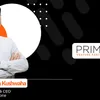D2C brands uniquely poised to tap $2.2T Indian retail market: Report
The online retail market is expected to reach $200 billion by 2030, compelling both upcoming and established brands to venture beyond their pre-existing distribution channels, said the report Decoding Omnichannel: Strategies for D2C Brands by Accel, Fireside Ventures & Redseer Strategy Consultants.
The Indian retail market is expected to reach $2.2 trillion by 2030, with 90% of offline purchases being influenced and dictated by what consumers see online, according to the report Decoding Omnichannel: Strategies for D2C Brands by Accel, Fireside Ventures, and Redseer Strategy Consultants.
Not only this, the online retail market is expected to reach $200 billion by 2030, compelling both upcoming and established brands to venture beyond their pre-existing distribution channels and towards an omnichannel approach.
The report stated that consumers are moving across multiple channels at different stages of the purchase funnel. They are increasingly searching across categories before making a purchase online, and therefore it is crucial for brands to be where their customers are. For instance, in sectors like jewellery, customers browse online, but ultimately make their purchases offline, in stores, after accurately assessing factors like fit and style in person.
Bluestone tapped into omnichannel customer experience to simplify the purchase process by offering an extensive online catalog and the opportunity to try on shortlisted products in offline stores for fit and style assessment.
D2C Brands are innately suitable for leveraging omnichannel strategies across different consumption categories. They have already nailed online retail, and can now use product innovation, data-driven marketing insights, and technological prowess to further scale offline channels, said the report.
Anil Kumar, Founder and CEO of Redseer Strategy Consultants, noted how in digital-first brands, “players are evolving towards the next step of broadening their focus by serving consumers where they are, be it online or offline. One prominent example of this would be Mamaearth, which having started as an online D2C brand, is driving a significant chunk of its topline from offline retail stores.”
The need for a combined online and offline experience is uniquely Indian. It bridges trust and convenience barriers which marr standalone approaches and provides customers with a shopping experience tailored to their needs.
Prashanth Prakash, Partner at Accel highlighted Agrostar’s story which “delivers an omnichannel experience to farmers in rural India, who both embrace the convenience of online ordering and still value the tactile experience and personal interaction of in-store pickups.”
“For every Sweet Karam Coffee that leverages q-commerce as a discovery channel, there’s a boAt that uses it to drive ecommerce bestsellers front and centre,” said Kanwaljit Singh, Founder and Managing Partner, Fireside Ventures, emphasising there is no one size that fits all.
Fireside is an early-stage venture fund that counts , , , and in its portfolio. Accel is a global venture capital firm that has backed big names like , Cabs, , and .
(The story was updated with a quote.)
Edited by Megha Reddy








